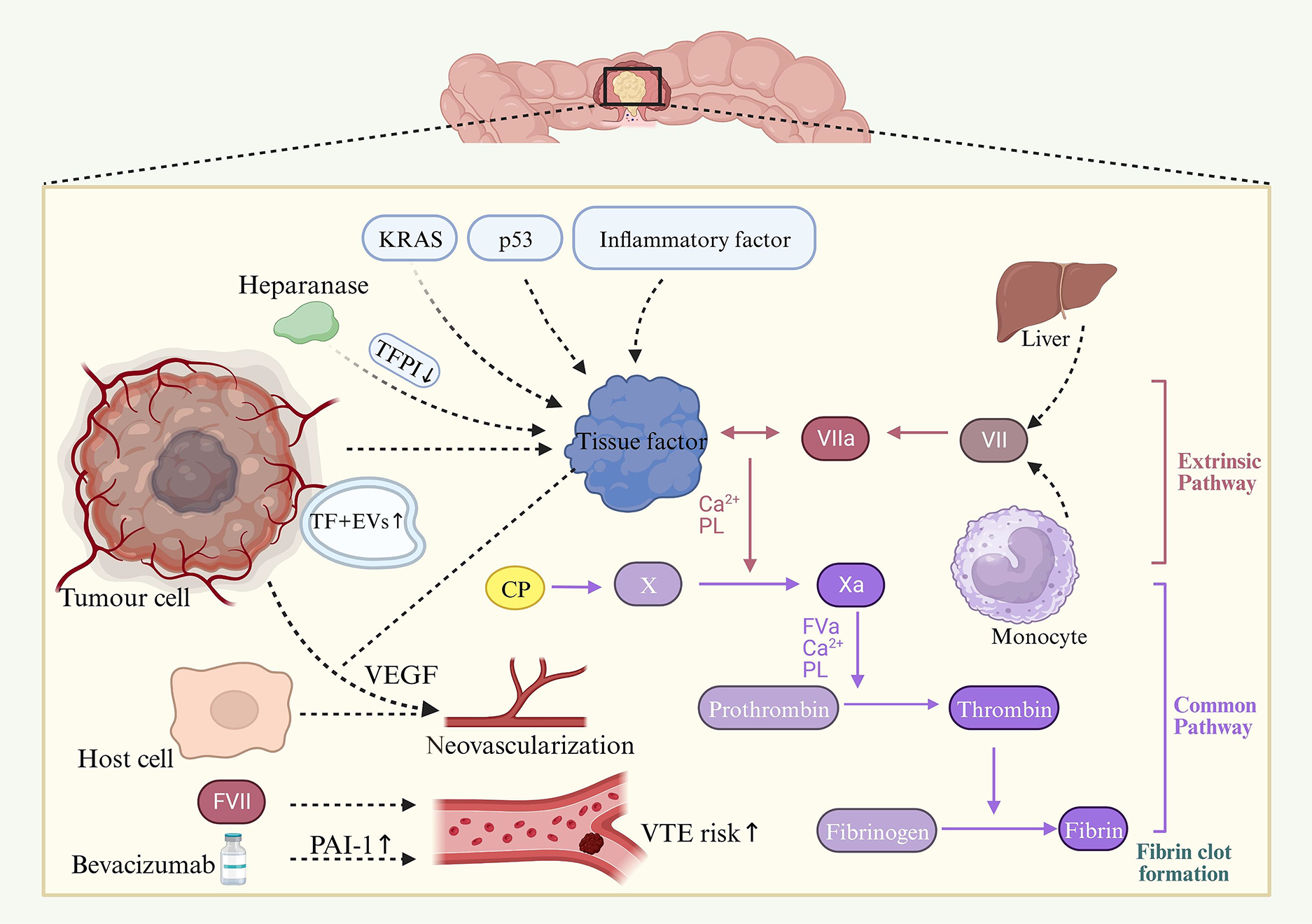Copyright
©The Author(s) 2025.
World J Gastroenterol. Apr 14, 2025; 31(14): 103901
Published online Apr 14, 2025. doi: 10.3748/wjg.v31.i14.103901
Published online Apr 14, 2025. doi: 10.3748/wjg.v31.i14.103901
Figure 2 Self-promoting procoagulant properties of tumor cells: An insight into tumor-induced coagulation mechanisms.
This figure illustrates the multifaceted role of colorectal cancer cells in activating the coagulation system. Central to this process is the self-expression of tissue factor (TF), a pivotal protein in cancer-associated thrombosis. The regulation of TF is influenced by key genetic alterations, including activation of the KRAS oncogene and loss of the p53 tumor suppressor, as well as by the tumor’s inflammatory milieu. TF not only initiates coagulation via its complex with activated factor VII, leading to exogenous pathway activation, but also enhances tumor progression by upregulating vascular endothelial growth factor (VEGF) in both malignant and host vascular cells. Concurrently, cancer procoagulant activates factor X, bypassing the need for factor VII. The role of acetylheparinase in increasing TF activity through the dissociation of tissue factor pathway inhibitor is also noted. Moreover, we observe an upsurge in TF-positive extracellular vesicles (TF+ EVs) in colorectal cancer, reinforcing the coagulation cascade. The association of plasma coagulation factors VII (FVII) and VIII (FVIII) with hypercoagulability is highlighted, along with the thrombotic implications of Bevacizumab treatment, a VEGF-targeting drug that elevates plasminogen activator inhibitor-1 levels. PL: Phospholipid; VTE: Venous thromboembolism. Created in BioRender (Supplementary material).
- Citation: Xu DG, Tan J. Interplay of genetic and clinical factors in cancer-associated thrombosis: Deciphering the prothrombotic landscape of colorectal cancer. World J Gastroenterol 2025; 31(14): 103901
- URL: https://www.wjgnet.com/1007-9327/full/v31/i14/103901.htm
- DOI: https://dx.doi.org/10.3748/wjg.v31.i14.103901









